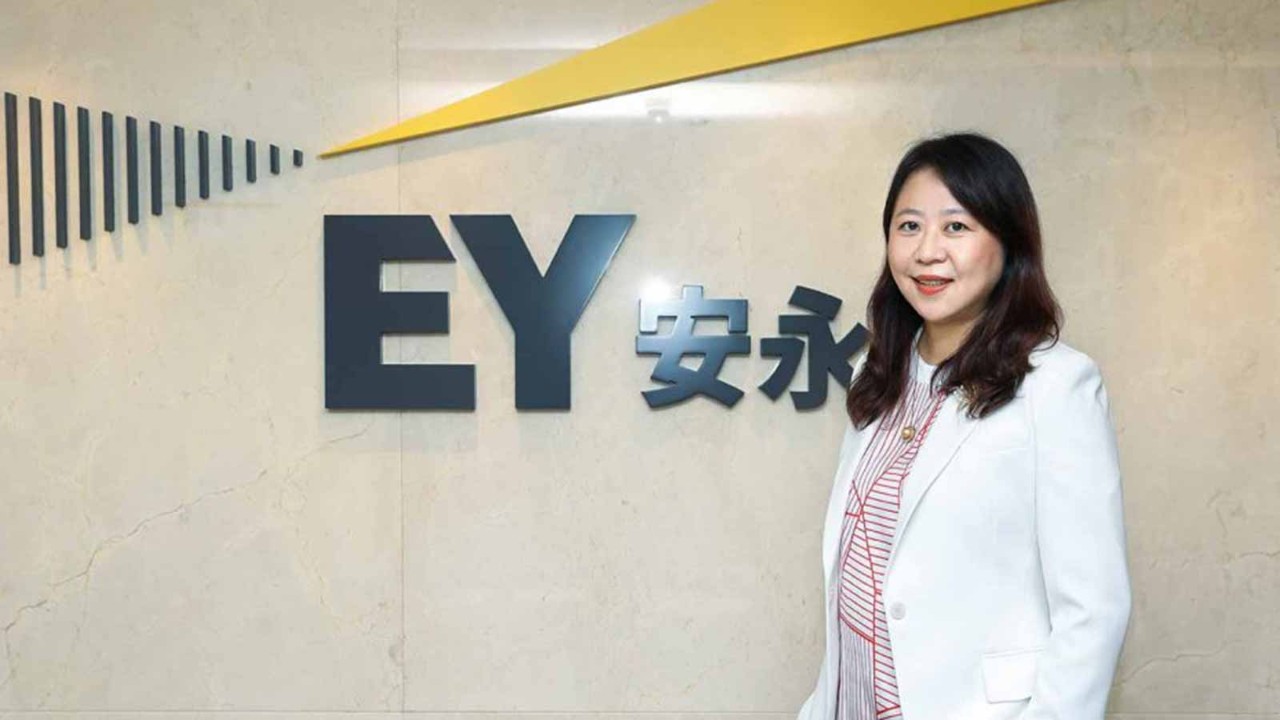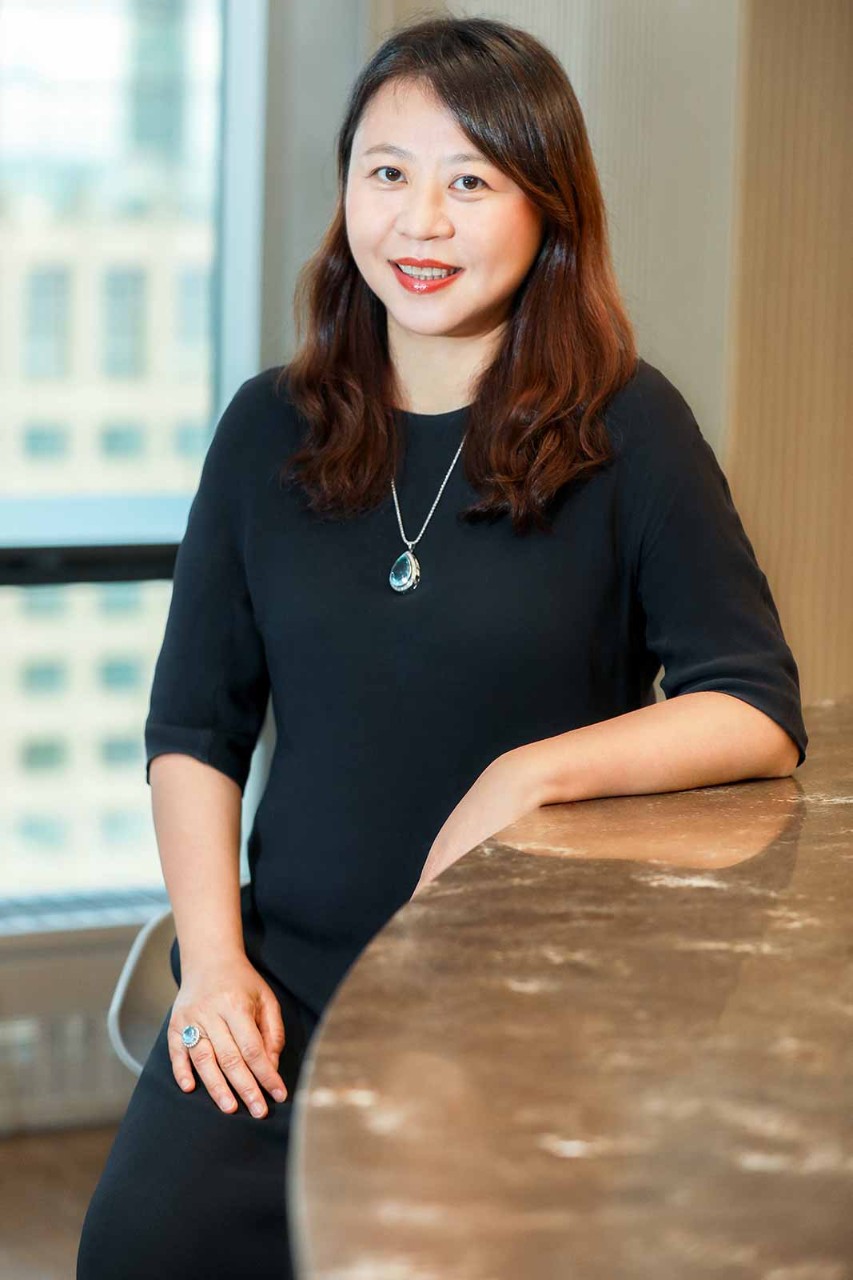
After nearly three decades at EY, Jane Yang FCCA sees the Big Four firm as a perfect launchpad for young accounting and financial professionals and all those who appreciate a working environment with continuous learning opportunities.
‘It’s a workspace where you can see your own growth, step by step and project by project,’ says the managing partner of the EY Beijing office and government and public service leader for EY Greater China. ‘With proper coaching and support all round you, you can step up and take responsibilities that you would otherwise never think of.’
‘You are what you’ve experienced, and you can be proud when you apply what you’ve learned to future projects’
New graduates may find it hard to imagine compiling an entire financial report on their own or advising the CEO of a client business about corporate strategies or industry insights. ‘However,’ Yang points out, ‘the knowledge you gain, experience you garner and skills you hone will prepare you for that.’
Continuous learning and fresh challenges have progressed Yang’s career in the firm’s Beijing, Chicago and London offices from the role of associate to managing partner.
‘Building up a skillset can be very fulfilling,’ she says. ‘You are what you’ve experienced, and you can be proud when you apply what you’ve learned to future projects.’
Hooked on accounting
Her vocation dates back to when she was a high school student and got hooked on the idea of studying international accounting, which had just emerged as a degree subject in China, as the country was opening up. She turned down a place at Peking University, taking the university entrance exam instead so she could follow her passion.
‘I grew up sensitive to numbers, hoping to put that to use in my career choice,’ she explains. ‘As for international accounting, the new subject caught my curiosity.’
Challenge is good
She joined EY after graduating, forgoing the opportunity of doing a master’s, although she eventually gained one 10 years later from the University of British Columbia. Recalling her early career, Yang says it’s important to absorb professional skills, to learn from doing, and not to shy away from challenges.
Her own most recent challenges come from a managerial level.
‘As a managing partner, you need to coordinate across different functions, service lines and regional offices, whether it’s a joint research project, internal sharing of a case study or talent relocation,’ she says. ‘I need to leverage resources from regional and global teams, and coordinate sharing of outstanding case studies and standardised solutions to ensure internal exchange is effortless and that we learn from each other.’
CV
2020 Managing partner of EY Beijing office
2014 EY Greater China government and public service market segment leader
2007 Partner EY China
1998 Rotated to Chicago for 18 months, followed by two years at EY London office
1994 Joined EY China
‘We keep our phones on 24/7, give a preliminary solution to clients within a day, and resolve fully within a week’

Outside the company, she engages with regulators and other stakeholders, and helps with branding efforts. ‘It requires a lot of coordination and communication skills, as things cannot be done by one person or one team alone,’ she says. ‘You need to rally support both internally and externally, manage the output, and push things forward in an organised and desirable way.’
Her role also requires her to respond fast, make tough decisions and own the responsibility. ‘We are committed to keeping our phones on 24 hours, giving a preliminary solution to our clients within a day and resolving fully within a week.’
She is also quick to credit others. ‘The art of leadership itself is a process of learning,’ she says. ‘Thanks to the tremendous support and encouragement from my colleagues, I can serve the team without too much stress.’
Cultural journey
Yang credits her global vision to her experience at EY, which included an 18-month rotation to the firm’s Chicago office and a two-year stint in London.
Recalling the experience of stepping out her comfort zone, she says the initial challenges came not only from language but also at a cultural level.
‘Although most clients were understanding, the pressure remained when you realised you were representing the company, and any negative impression on you personally would affect how they saw the service quality of the firm as a whole,’ she says. ‘Gradually, after mastering the ground rules, I grew to be more at ease in social communications and at work.’
‘ACCA can be a good stepping stone early in a career, and later serves as a professional community, a family’
It was in London that Yang prepared for and passed the ACCA exams. Her initial incentive was to catch up on economics and tax knowledge for the UK, but she soon realised that ACCA membership could mean much more than that. She is now chair of the ACCA China North steering committee.
She says: ‘ACCA can be a good stepping stone, especially early in a career, while later on it also serves as a professional community, a family, where we can stay connected to the organisation and other members in China and overseas. The shared identity can instantly draw you and your potential clients closer. You can always trust ACCA for support and network building.’
Public roles
Along with her job at EY, Yang serves as a member of the Ministry of Finance’s government accounting standard consultation committee and of the Public Private Partnerships Center. Between 2012 and 2016, she was a member of the merger and acquisition review committee of the China Securities Regulation Committee (CSRC).
‘From EY’s perspective, we cherish the opportunity to better understand instructions and regulatory principles from the government, while regulators are also interested in feedback from the market side,’ she says.
EY China
1981 EY becomes one of the first international organisations to set up operations in mainland China
33 Number of EY Greater China offices
22,000+ Number of EY Greater China employees
‘Students are keen to know what it’s really like to work in the auditing industry’
Another of her roles is guest professor and enterprise coach for postgraduates of the accounting department of Renmin University. ‘As someone who benefits greatly from the industry’s fast growth in its early years in China, I wish to pass on my experience to younger talents and contribute my share to the industry’s future development,’ she explains. ‘Students are keen to know what it’s really like to work in the auditing industry. Frontline experience is more likely to inspire them.’
The key to empowering talent lies in training according to aptitude and allowing room for trial and error, Yang believes. ‘A flexible mechanism is needed so that they can find the right position at a Big Four firm that fits their interest and potential. Sometimes a poor match for auditing may prove to be a good referral to the transaction consultation team, while those who are good at work but haven’t passed the necessary qualification exam should be given more time for study.’
Bright future
Despite recent inflationary risk and market turmoils, Yang is optimistic about the future of professional finance and accounting.
‘The capital market cycle poses both challenges and opportunities,’ she says. ‘Although pre-IPO auditing plans may be postponed, companies can choose to raise capital through mergers and acquisitions, leading to greater demand for the transaction consultation team.’
As for auditing, the industry has no cycle, as it is a regulatory requirement. Last year, the EY China North office saw audit revenue grow around 20% year on year, against a double-digit increase in its overall business.
‘It remains a very promising prospect for finance and accounting professionals,’ Yang says. ‘As long as China continues with its reform and opening up, I’m very bullish on how financial professionals like us can aid our clients to a brighter future, and industry to more extensive development.’

